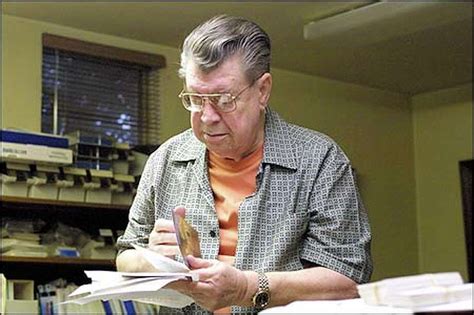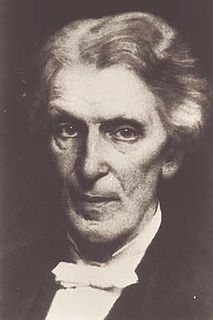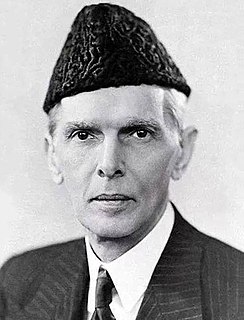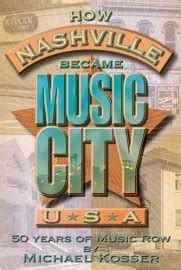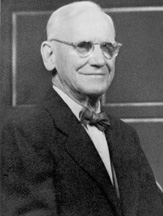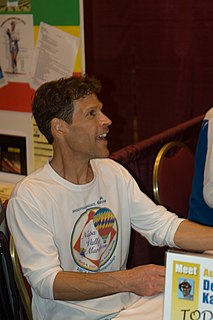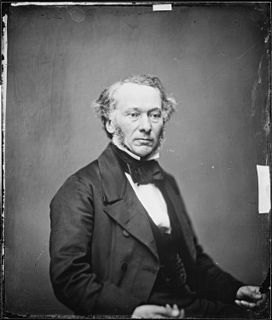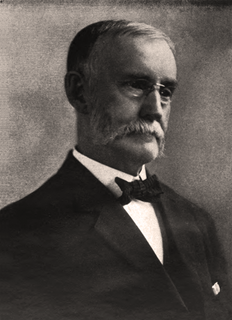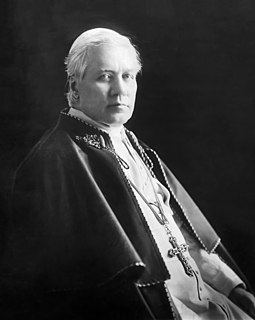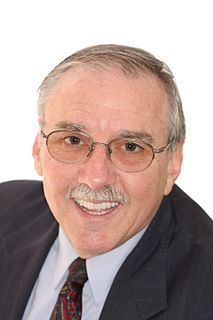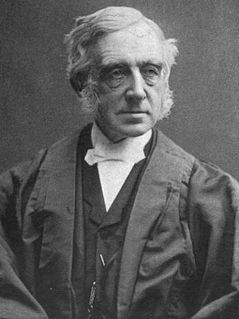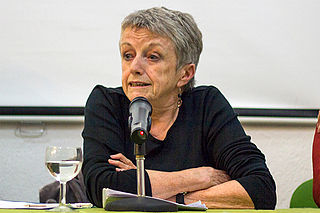Top 357 Lays Quotes & Sayings - Page 6
Explore popular Lays quotes.
Last updated on December 18, 2024.
Having a baby isn't so bad. If you're a female Emperor penguin in the Antarctic. She lays the egg, rolls it over to the father, then takes off for warmer weather where she eats and eats and eats. For two months, the father stands stiff, without food, blind in the 24-hour dark, balancing the egg on his feet. After the little penguin is hatched, the mother sees fit to come home.
The subject who speaks is situated in relation to the other. This privilege of the other ceases to be incomprehensible once we admit that the first fact of existence is neither being in itself nor being for itself but being for the other, in other words, that human existence is a creature. By offering a word, the subject putting himself forward lays himself open and, in a sense, prays.
There are some who, for varying reasons, would appease Red China. They are blind to history's clear lesson, for history teaches with unmistakable emphasis that appeasement but begets new and bloodier war. It points to no single instance where this end has justified that means, where appeasement has led to more than a sham peace. Like blackmail, it lays the basis for new and successively greater demands until, as in blackmail, violence becomes the only other alternative.
In Christ's resurrection, therefore, the Christian man sees the earnest and pledge of his own resurrection; and by it he is enheartened as he lays away the bodies of those dear to him, not sorrowing "as the rest that have no hope," but with hearts swelling with glad anticipations of the day when they shall rise to meet their Lord. "For if we believe that Jesus died and rose again, even so them also that are fallen asleep in Jesus will He bring with Him.
... we are obliged to produce the truth by the power that demands truth and needs it in order to function: we are constrained, we are condemned to admit the truth or to discover it. Power constantly asks questions and questions us; it constantly investigates and records; it institutionalizes the search for the truth, professionalizes it, and rewards it. ... In a different sense, we are also subject to the truth in the sense that truth lays down the law: it is the discourse of truth that decides, at least in part; it conveys and propels effects of power.
This faith, is not like a deed to a house in which one may live with full rights of possession. It is more like a kit of tools with which a man may build himself a house. The tools will be worth just what he does with them. When he lays them down, they will have no value until he takes them up again.
However constant the visitations of sickness and bereavement, the fall of the year is most thickly strewn with the fall of human life. Everywhere the spirit of some sad power seems to direct the time; it hides from us the blue heavens, it makes the green wave turbid; it walks through the fields, and lays the damp ungathered harvest low; it cries out in the night wind and the shrill hail; it steals the summer bloom from the infant cheek; it makes old age shiver to the heart; it goes to the churchyard, and chooses many a grave.
A license cannot be revoked because a man is red-headed or because he was divorced, except for a calling, if such there be, for which red-headedness or an unbroken marriage may have some rational bearing. If a State licensing agency lays bare its arbitrary action, or if the State law explicitly allows it to act arbitrarily, that is precisely the kind of State action which the Due Process Clause forbids.
As the Honorable Elijah Muhammad said, 'justice lays down with you when you lay down, justice gets up with you when you get up.' The requirement of this universally applicable law is that you must do unto others as you would have done unto yourself. When you wake up, you wake up to that law that whatever you put out is going to come back.
The great passion in a man's life may not be for women or men or wealth or toys or fame, or even for his children, but for his masculinity, and at any point in his life he may be tempted to throw over the things for which he regularly lays down his life for the sake of that masculinity. He may keep this passion secret from women, and he may even deny it to himself, but the other boys know it about themselves and the wiser ones know it about the rest of us as well.
Islam lays great emphasis on the social side of things. Every day, the rich and the poor, the great and the small living in a locality are brought five times in a day in the mosque in the terms of perfect equality of mankind and thereby the foundation of a healthy social relationship is laid and established through prayer. At the end of Ramazan comes the new moon, the crescent as a signal for a mass gathering on the 'Id day again in perfect equality of mankind which effects the entire Muslim world.
There is an honesty which is but decided selfishness in disguise. The person who will not refrain from expressing his or her sentiments and manifesting his or her feelings, however unfit the time, however inappropriate the place, however painful this expression may be, lays claim, forsooth, to our approbation as an honest person, and sneers at those of finer sensibilities as hypocrites.
Be not too slow in the breaking of a sinful custom; a quick, courageous resolution is better than a gradual deliberation; in such a combat he is the bravest soldier that lays about him without fear or wit. Wit pleads, fear disheartens; he that would kill Hydra had better strike off one neck than five heads: fell the tree, and the branches are soon cut off.
Be not afraid of those trials which God may see fit to send upon thee. It is with the wind and the storm of tribulation that God, in the garner of the soul, separates the true wheat from the chaff. Always remember, therefore, that God comes to thee in thy sorrows as really as in thy joys. He lays low and He builds up. Thou wilt find thyself far from perfection if thou dost not find God in everything.
Know, then, that now, precisely now, these people are more certain than ever before that they are completely free, and at the same time they themselves have brought us their freedom and obediently laid it at our feet. It is our doing, but is it what you wanted? This sort of freedom?' Again I don't understand', Alyosha interrupted, 'Is he being ironic? Is he laughing?' Not in the least. He precisely lays it to his and his colleagues' credit that they have finally overcome freedom, and have done so in order to make people happy.
Father Time is not always a hard parent and though he tarries for none of his children, often lays his hand lightly upon those who have used him well; making them old men and women inexorably enough, but leaving their hearts and spirits young and in full vigor. With such people the gray head is but the impression of the old fellow's hand in giving them his blessing, and every wrinkle but a notch in the quiet calendar of a well-spent life.
Songwriting is a craft. Writing good songs on a a consistent basis doesn not happen spontaneously. In fact, most of our best songwriters learned to write good songs by writing a lot of not so good ones. Education matters in songwriting, just as it matters for physicists, chemists, doctors, lawyers and MBAs. Education lays the foundataion on which to build experience.
He who asks fortune-tellers the future unwittingly forfeits an inner intimation of coming events that is a thousand times more exact than anything they may say. He is impelled by inertia, rather than curiosity, and nothing is more unlike the submissive apathy with which he hears his fate revealed than the alert dexterity with which the man of courage lays hands on the future.
Happiness is not like we were walking around fingering razor blades or anything like that. But it just sort of seems as if - we sort of knew how happy our parents were, and we would compare our lives with our parents and see that, at least on the surface or according to the criteria that the culture lays down for a successful, happy life, we were actually doing better than a lot of them were.
How dreadful are the curses which Mohammedanism lays on its votaries! Besides the fanatical frenzy, which is as dangerous in a man as hydrophobia in a dog, there is this fearful fatalistic apathy. Improvident habits, slovenly systems of agriculture, sluggish methods of commerce, and insecurity of property exist wherever the followers of the Prophet rule or live. A degraded sensualism deprives this life of its grace and refinement; the next of its dignity and sanctity.
Giving free advice is a sad waste of effort. In the first place, no man will act upon it unless he is already inclined to do so. Secondly, when a man lays his case before you, the idea that he is asking your advice is a polite fabrication. He merely is suggesting that he is doing so, while as a fact his real object is to acquaint you with his personal activity. He wants to talk to somebody, being a natural gossip or gadder, and he plays upon your propensity for "giving advice" in order to get an audience.
Running unites us and brings us together because, in the words of the great Bill Rogers, "We sweat the same. We struggle the same." Running is a simple, primitive act, and therein lays its power. for it is one of the few commonalities left between us as a human race. Toeing the starting line of a marathon, regardless of the language you speak, the God you worship or the color of your skin, we all stand as equal. Perhaps the world would be a better place if more people ran.
Certainly each side - the 'absolutists' and the 'constructivists' or 'humanists', as I've labelled them - accuses the other of hubris, and lays claim to humility. I see hubris on both sides: a pretence that we could ascend to an objective account of the world, on the one hand, and a pretence that we have the resources to live and act without a sense of there being something to which we answerable, on the other. So both sides are 'villains'.
Brahms once remarked that the mark of an artist is how much he throws away. Nature, the great creator, is always throwing things away. A frog lays several million eggs at a sitting. Only a few dozen of these become tadpoles, and only a few of those become frogs. We can let imagination and practice be as profligate as nature.
Luck is always waiting for something to turn up. Labor, with keen eyes and strong will, always turns up something. Luck lies in bed and wishes the postman will bring news of a legacy. Labor turns out at six o'clock and with busy pen or ringing hammer, lays the foundation of a competence. Luck whines. Labor whistles. Luck relies on chance, labor on character.
The most necessary task of civilization is to teach people how to think. It should be the primary purpose of our public schools. The mind of a child is naturally active, it develops through exercise. Give a child plenty of exercise, for body and brain. The trouble with our way of educating is that it does not give elasticity to the mind. It casts the brain into a mold. It insists that the child must accept. It does not encourage original thought or reasoning, and it lays more stress on memory than observation.
Life is a building. It rises slowly, day by day throughout the years. Every new lesson we learn lays a block on the edifice, which is rising silently within us. Every experience, every touch of another life on ours, every influence that impresses us, every book we read, every conversation we hear, every act of our commonest days, adds something to the invisible building.
Nothing so evil as money ever grew to be current among men. This lays cities low, this drives men from their homes, this trains and warps honest souls till they set themselves to works of shame; this still teaches folk to practise villainies, and to know every godless deed. But all the men who wrought this thing for hire have made it sure that, soon or late, they shall pay the price.
Is it permitted for Catholics to be present at, or to take part in, conventions, gatherings, meetings, or societies of non-Catholics which aim to associate together under a single agreement everyone who, in any way, lays claim to the name of Christian? In the negative! ... It is clear, therefore, why this Apostolic See has never allowed its subjects to take part in the assemblies of non-Catholics. There is one way in which the unity of Christians may be fostered, and that is by furthering the return to the one true Church of Christ for those who are separated from Her.
There is a sort of myth of History that philosophers have.... History for philosophers is some sort of great, vast continuity in which the freedom of individuals and economic or social determinations come and get entangled. When someone lays a finger on one of those great themes--continuity, the effective exercise of human liberty, how individual liberty is articulated with social determinations--when someone touches one of these three myths, these good people start crying out that History is being raped or murdered.
The horse and mule live thirty years And never know of wine and beers. The goat and sheep at twenty die Without a taste of scotch or rye. The cow drinks water by the ton And at eighteen is mostly done. The dog at fifteen cashes in Without the aid of rum or gin. The modest, sober, bone-dry hen Lays eggs for noggs and dies at ten. But sinful, ginful, rum-soaked men Survive three-score years and ten. And some of us, though mighty few Stay pickled 'til we're ninety-two.
We may say that feelings have two kinds of intensity. One is the intensity of the feeling itself, by which loud sounds are distinguished from faint ones, luminous colors from dark ones, highly chromatic colors from almost neutral tints, etc. The other is the intensity of consciousness that lays hold of the feeling, which makes the ticking of a watch actually heard infinitely more vivid than a cannon shot remembered to have been heard a few minutes ago.
It is paltry philosophy if in the old-fashioned way one lays down rules and principles in total disregard of moral values . As soon as these appear one regards them as exceptions, which gives them a certain scientific status, and thus makes them into rules. Or again one may appeal to genius , which is above all rules; which amounts to admitting that rules are not only made for idiots , but are idiotic in themselves.
The lancet fluke (Dicrocoelium) infects the brain of ants by taking control and driving them to climb to the top of a blade of grass where they can be eaten by a cow. The ingested fluke then lays eggs in the cow gut. Eventually, the eggs exit the cow, and hungry snails eat the dung (and fluke eggs). The fluke enters the snail's digestive gland and gets excreted in sticky slime full of a seething mass of flukes to be drunk by ants as a source of moisture.
Ivan and Misha is the great American Russian Novel told as Chekhov would tell it, in stories of delicacy, humanity, and insight. From Kiev to Manhattan, Brighton Beach and Bellevue, Michael Alenyikov lays out a series of compelling arguments for brotherhood between brothers, between lovers, between men from an old country. Alenyikov confronts big subjects—illness and madness, sex and love in the age of AIDS, old and new world values, a fallen wall, the metaphysics of survival, the march of generations.
Novelty may fix our attention not even on the service but on the celebrant. You know what I mean. Try as one may to exclude it, the question "What on earth is he up to now?" will intrude. It lays one's devotion waste. There is really some excuse for the man who said, "I wish they'd remember that the charge to Peter was Feed my sheep; not Try experiments on my rats, or even, Teach my performing dogs new tricks.
For indeed, grace is the key to it all. It is not our lavish good deeds that procure salvation, but God's lavish love and mercy. That is why the poor are as acceptable before God as the rich. It is the generosity of God, the freeness of his salvation, that lays the foundation for the society of justice for all. Even in the seemingly boring rules and regulations of tabernacle rituals, we see that God cares about the poor, that his laws make provision for the disadvantaged. God's concern for justice permeated every part of Israel's life. It should also permeate our lives.
Heaven help a timid child in a trendy tide He really doesn't know That his heart's being taken for a ride Doing what the world lays down As a steadfast rule And changing when the world says to change Like a steadfast fool Heaven, heaven help me I'm one of the dominoes Chain reaction coming Blow by blow
A child in his earliest years, when he is only two or a little more, is capable of tremendous achievements simply through his unconscious power of absorption, though he is himself still immobile. After the age of three he is able to acquire a great number of concepts through his own efforts in exploring his surroundings. In this period he lays hold of things through his own activity and assimilates them into his mind.
The slave labors, but with no cheer - it is not the road to respectability, it will honor him with no citizens' trust, it brings no bread to his family, no grain to his garner, no leisure in after-days, no books or papers to his children. It opens no school-house door, builds no church, rears for him no factory, lays no keel, fills no bank, earns no acres. With sweat and toil and ignorance he consumes his life, to pour the earnings into channels from which he does no drink, into hands that never honor him. But perpetually rob and often torment.
We have become so accustomed to the idea of divine love and of God's coming at Christmas that we no longer feel the shiver of fear that God's coming should arouse in us. We are indifferent to the message, taking only the pleasant and agreeable out of it and forgetting the serious aspect, that the God of the world draws near to the people of our little earth and lays claim to us. The coming of God is truly not only glad tidings, but first of all frightening news for everyone who has a conscience.
When I see brokenness, poverty and crime in inner cities, I also see the enormous potential and readiness for transformation and rebirth. We are creating an art form that comes from the heart and reflects the pain and sorrow of people's lives. It also expresses joy, beauty, and love. This process lays the foundation of building a genuine community in which people are reconnected with their families, sustained by meaningful work, nurtured by the care of each other and will together raise and educate their children. Then we witness social change in action.
Advice is offensive, not because it lays us open to unexpected regret, or convicts us of any fault which had escaped our notice, but because it shows us that we are known to others as well as to ourselves; and the officious monitor is persecuted with hatred, not because his accusation is false, but because he assumes that superiority which we are not willing to grant him, and has dared to detect what we desired to conceal.
There exists a law, not written down anywhere but inborn in our hearts; a law which comes to us not by training or custom or reading but by derivation and absorption and adoption from nature itself; a law which has come to us not from theory but from practice, not by instruction but by natural intuition. I refer to the law which lays it down that, if our lives are endangered by plots or violence or armed robbers or enemies, any and every method of protecting ourselves is morally right.
Life is better than death. But death comes eventually to everyone. It is something which many in their prime may prefer not to think about. But at 89, I see no point in avoiding the question. What concerns me is: How do I go? Will the end comes swiftly, with a stroke in one of the coronary arteries? Or will it be a stroke in the mind that lays me out in bed for months, semi-comatose? Of the two, I prefer the quick one.
Sad, indeed, would the whole matter be if the Bible had told us everything God meant us to believe. But herein is the Bible greatly wronged. It nowhere lays claim to be regarded as the Word, the Way, the Truth. The Bible leads us to Jesus, the inexhaustible, the ever-unfolding Revelation of God. It is Christ "in whom are hid all the treasures of wisdom and knowledge," not the Bible, save as leading to Him.
Library of the Works of Ludwig von Mises”. Here is an article he wrote in 1951, some two years after his magnum opus Human Action appeared, where is lays out his case in a more popular form. The money sentences are “Economic theory has demonstrated in an irrefutable way that a prosperity created by an expansionist monetary and credit policy is illusory and must end in a slump, an economic crisis. It has happened again and again in the past, and it will happen in the future, too.
The human race may be compared to a writer. At the outset a writer has often only a vague general notion of the plan of his work, and of the thought he intends to elaborate. As he proceeds, penetrating his material, laboring to express himself fitly, he lays a firmer grasp on his thought; he finds himself. So the human race is writing its story, finding itself, discovering its own underlying purpose, revising, recasting a tale pathetic often, yet none the less sublime.
The absolutist lays down the law, but the relativist hears only roaring and bawling. Or, when the relativist voice, as it is heard from philosophers such as Nietzsche or James, itself starts to grate and sounds shrill, as it often does, and when the relativist then offers concessions, the absolutist hears only insincerity. The war of words can often turn into a dialogue of the deaf, and this too if part of its power to arouse outrage and fury.
I wish I had read Sacred Pregnancy when I was pregnant instead of the dozen books I had to piece together to try to make sense of it all. Anni Daulter has created what should be the new standard for today's mom: birth journals, labor workbooks, pregnancy memoirs, and holistic wisdom. It is gentle and enlightening, and lays the foundation for what we know helps women have the labor and birth they want and deserve: support, self-knowledge, and empowerment.
One cannot walk down an avenue, converse with a friend, enter a building, browse beneath the sandstone arches of an old arcade without meeting an instrument of time. Time is visible in all places. Clock towers, wristwatches, church bells divide years into months, months into days, days into hours, hours into seconds, each increment of time marching after the other in perfect succession. And beyond any particular clock, a vast scaffold of time, stretching across the universe, lays down the law of time equally for all.
When a miner looks at the rope that is to lower him into the deep mine, he may coolly say, "I have faith in that rope as well made and strong." But when he lays hold of it, and swings down by it into the tremendous chasm, then he is believing on the rope. Then he is trusting himself to the rope. It is not a mere opinion - it is an act. The miner lets go of every thing else, and bears his whole weight on those well braided strands of hemp. Now that is faith.
Beware of books. They are more than innocent assemblages of paper and ink and string and glue. If they are any good, they have the spirit of the author within. Authors are rogues and ruffians and easy lays. They are gluttons for sweets and savories. They devour life and always want more. They have sap, spirit, sex. Books are panderers. The Jews are not wrong to worship books. A real book has pheromones and sprouts grass through its cover.
The search for a "suitable" church makes the man a critic where God wants him to be a pupil. What he wants from the layman in church is an attitude which may, indeed, be critical in the sense of rejecting what is false or unhelpful but which is wholly uncritical in the sense that it does not appraise- does not waste time in thinking about what it rejects, but lays itself open in uncommenting, humble receptivity to any nourishment that is going.
We have created new idols. The worship of the ancient golden calf (cf. Ex 32:1-35) has returned in a new and ruthless guise in the idolatry of money and the dictatorship of an impersonal economy lacking a truly human purpose. The worldwide crisis affecting finance and the economy lays bare their imbalances and, above all, their lack of real concern for human beings; man is reduced to one of his needs alone: consumption.
For me, places are articulations of 'natural' and social relations, relations that are not fully contained within the place itself. So, first, places are not closed or bounded - which, politically, lays the ground for critiques of exclusivity. Second, places are not 'given' - they are always in open-ended process. They are in that sense 'events'. Third, they and their identity will always be contested (we could almost talk about local-level struggles for hegemony).
